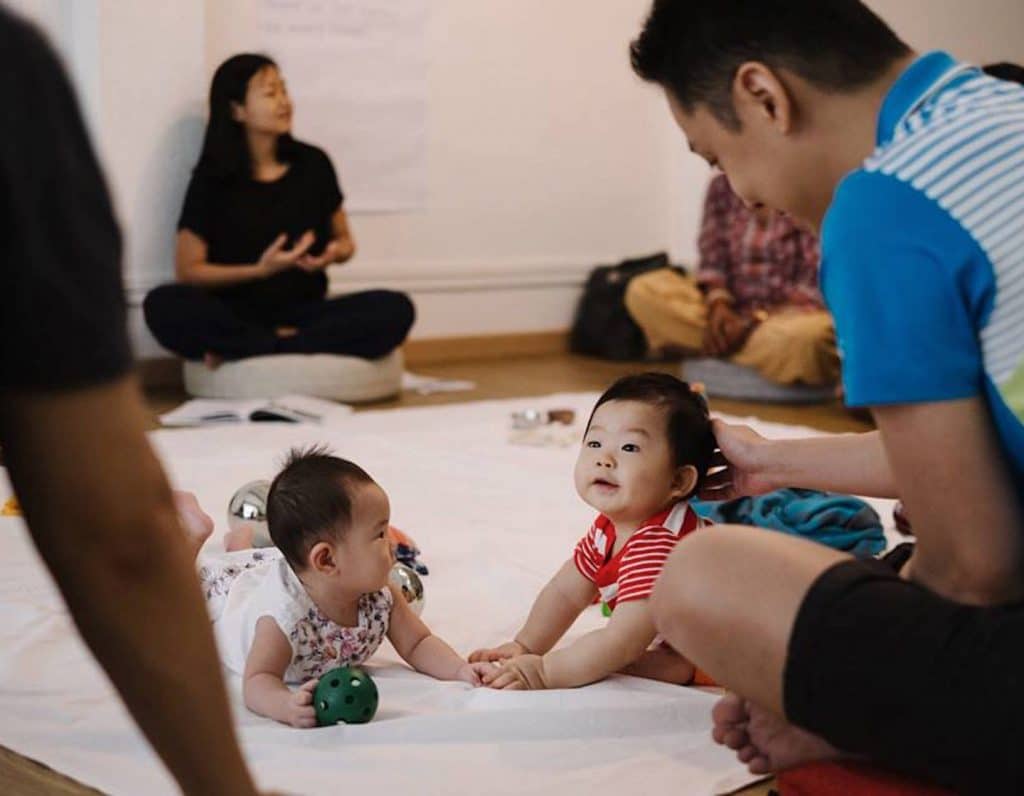
 Post Category - ParentingParenting - Post Category - BabyBaby - Post Category - Toddler & PreschoolerToddler & Preschooler
Post Category - ParentingParenting - Post Category - BabyBaby - Post Category - Toddler & PreschoolerToddler & PreschoolerSome parents might think that reasoning with a toddler is not going to work simply because they don’t have the maturity of thinking and reasoning. Do you agree?
Please welcome Li Ling Phua of Chapter Zero Singapore, a social enterprise that supports the principles of respectful parenting here in Singapore. If you’ve found yourself at wit’s end in shouting matches with your toddler, you might be surprised at how effective (and calm!) the RIE approach can be. Read on for expert tips that can improve your communication with your child, along with info on upcoming parenting workshops!
A while ago, a magazine for parents contacted Chapter Zero for input on a story they were writing on discipline. I was given a list of questions. Amongst them was a question on reasoning with children and whether it works. I wrote so much in response to that particular question it became an entire piece unto itself. Alas, the magazine didn’t use my thoughts on reasoning with children in their story.
Perhaps by happenstance, or confirmation bias, I keep seeing this same sentiment – that children cannot be reasoned with – surface in online parenting groups and social gatherings. Parents ask, “How do you reason with a toddler? My child refuses to listen!” At the same time, it is frequently said that there’s a certain age for which reasoning starts to ‘work’ when people say, “When children are at an age where they can’t be reasoned with it’s better if we [insert punitive method]…”
What’s this magical age where children can suddenly be reasoned with? And more importantly, what does it mean when people say reasoning doesn’t ‘work‘?
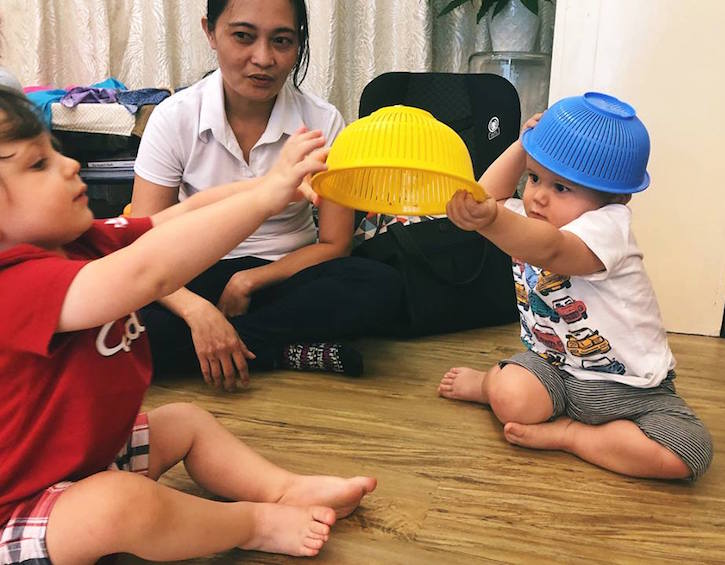
For parents who strive to relate to their children respectfully, reasoning isn’t a ‘method’ to use only if it is ‘effective’. It is something that comes naturally to our parent-child interactions because we believe in working with children and trusting in their competence — even that of young babies. Respectful parents reason with their children because they see themselves as being in partnership with them, just like adults in relationships where there is mutual respect and reasoning is used to work through issues.
The effectiveness of reasoning shouldn’t be gauged by a lack of disagreement. Just because we reason with our superiors at work, for example, certainly does not guarantee their agreement.
When someone disagrees with us, most of us wouldn’t throw our hands in the air, declare that reasoning ‘doesn’t work’ and start shouting, turning to physical force or isolation to communicate our wishes. You might know someone who does that, and you might have mentally made a note to yourself to keep a distance because this person may have ‘anger management issues’. Yet when parents do the same in response to their children’s disagreement, the blame is on the child — “Reasoning doesn’t work with this child! I have no choice but to…”
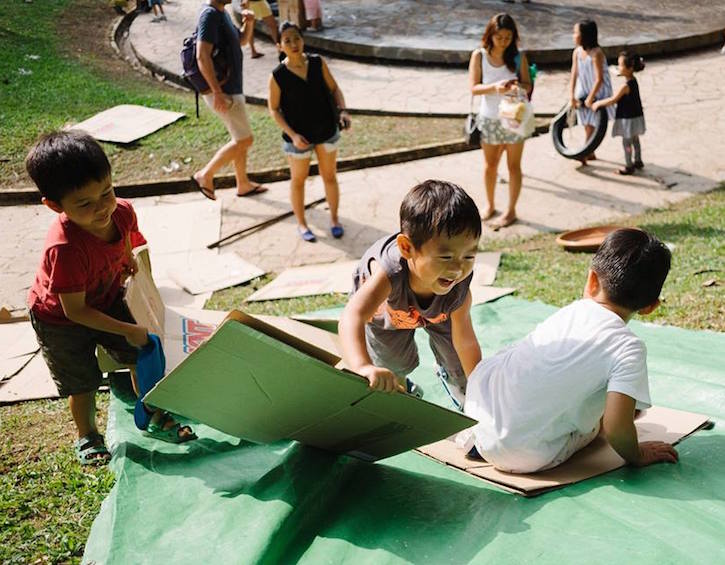
Like grownups, children will sometimes reject our reasoning, and have strong feelings about it. The difference is that adults tend to expect compliance from children because we give less value to a child’s feelings and thoughts. If we respect children as free and equal human beings, we’ll accept that children are entitled to their views and emotions. In this vein, reasoning isn’t something we do only if the child is sure to comply without resistance. We reason because we are committed to communicating respectfully with people, and we don’t believe that some people are more deserving of our respect than others.
Further, as leading neuroscientist Dr Bruce Perry recommends (and whose 3-R approach we expand on in our workshops: before reasoning, we have to first regulate emotions (by helping the child regulate their emotions, we calm their freeze/flight/freeze responses) and then relate to them (by connecting to them through an attuned and responsive relationship).
How do we reason with children?
1. State observations and prepare them for what to expect
Any reasoning we do with children should be clear and succinct, and appropriate to their developmental age. The earliest form of reasoning happens right from birth when parents state observations and prepare children for what to expect. Instead of picking up an infant without warning, we might say, “I see that your diaper’s quite full. We’ll have to change your diaper.” Or “You’re crying. Are you telling me that you’re hungry? I’m going to pick you up now so we can nurse.” Babies who are talked to in this manner come to understand that they are seen, and their needs will be responded to by a caring adult. Also, because their caregivers are attuned to their cues, or at least make an effort to understand them, babies believe they are capable of communicating their feelings and needs.
2. Set limits and offer alternatives
For some of us, “setting limits” might conjure in our minds images of parents or teachers speaking loudly with their hands on their hips. But creating boundaries need not look this way, and can in fact be done compassionately. Even with young babies, we can set clear limits and perhaps offer alternatives. “Oh you’ve got a tuft of my hair in your hand. It hurts when you pull. Here’s a cloth for you to grab instead.” In this way, babies will understand that their caregivers will keep them, others, and their environment safe by creating boundaries. At the same time, they experience boundaries being set without blame or shame.
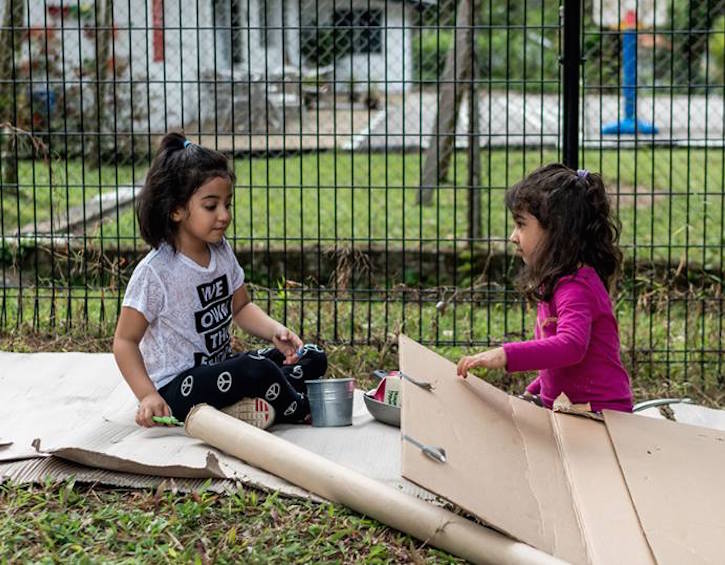
3. Provide choices
As babies enter toddlerhood and start developing a greater sense of self, we may give them more agency by offering them choices. “I see you’re needing something to bite. That isn’t clean. Would you like this teething ring, or this teething biscuit here?” This meets a toddler’s need for more autonomy and choice.
4. Invitation to problem solve
Further ahead, we involve them in problem solving. “You really want to swing that stick. It’s really long and you need plenty of space around you to swing it. There are other people near you. What do you think you can do?” When we first do this, most children would need some guidance, and we may offer them possible solutions. But over time, toddlers who are used to being included in thinking of solutions learn to do this themselves.
5. I-Messages
For older toddlers, we might use I-messages to express our feelings and needs without assigning blame to give them the opportunity to respond and contribute. “I’m feeling unwell today. When you bang that drum, it makes a loud sound that hurts my ears and head.” Children who have been trusted to make good choices, and whose reasoning skills have been allowed to develop from the start, are quite capable of responding to needs and feelings of others.
6. Empathise: Name it to tame it
As mentioned earlier, there will be times children disagree. They are, after all, people with minds of their own. While adults also disagree, children’s dissent tends to be louder and more uncontrolled, which could trigger strong reactions in adults. Especially for those of us whose caregivers were not comfortable with us expressing difficult feelings growing up, we might feel rising anger, an impulse to walk away (flight), or an urge to shut down children’s feelings (fight).
To that end, some of us put up a fight by amping up our intensity, while some of us give in. I’m guessing this is the reason why many parents who have tried reasoning say, “My child cannot be reasoned with!” How does one empathise with a child? Name their feelings and reflect how they might be feeling: “You are so upset that you cannot play in the tub anymore. It is so fun to play in the tub!”
This helps us regulate their emotions as by naming their feelings, we tame it!
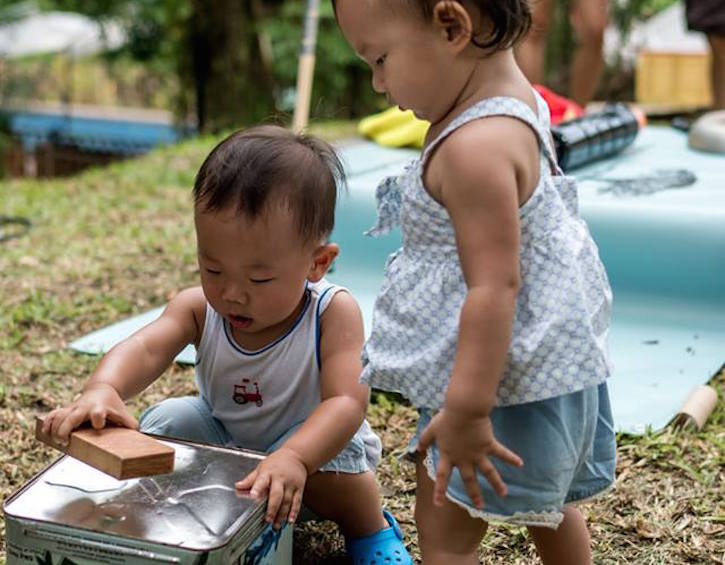
A common factor in all of the above methods is that children are seen as active participants instead of passive recipients, regardless of the child’s age. This requires that adults trust in the competence of children. The executive functioning that children develop from our use of reasoning and problem solving with them from our very first interactions with them will pave the way for their capacity to find solutions, identify their own feelings and needs as well as others, make measured decisions and negotiate respectfully as they grow up.
Would you be open to trusting them to problem-solve with you?
Want to know more, mama? Chapter Zero will be launching a series of Respectful Parenting Workshops Facebook pagestarting next week (12 September). Visit www.chapterzero.org or check out their for more details!






 View All
View All





 View All
View All








 View All
View All








